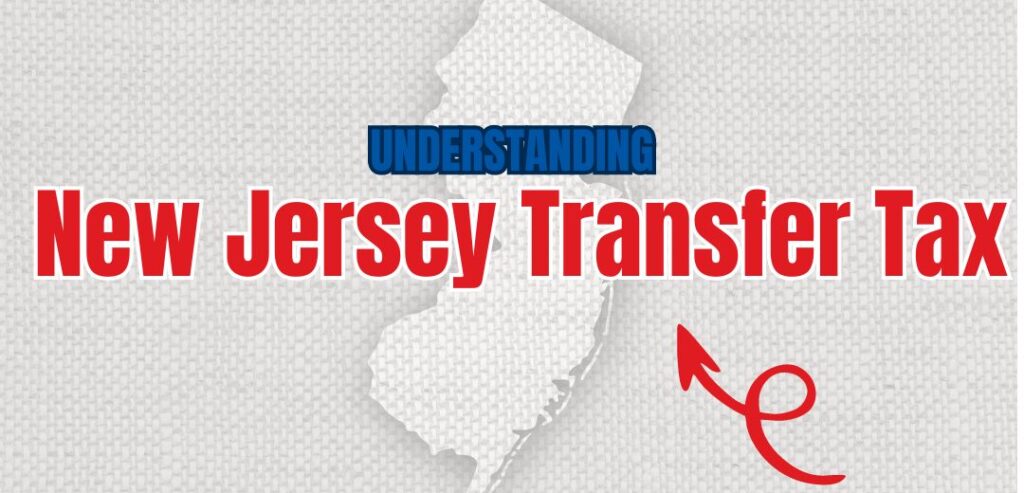
Are you ready to delve into the intricacies of the NJ real estate transfer tax? Whether you’re embarking on a property journey in the serene landscapes of Monmouth County, the bustling communities of Middlesex County, or any other corner of the Garden State, understanding the NJ real estate transfer tax is paramount. As you navigate the diverse real estate market of New Jersey, you’ll encounter various nuances in the transfer tax landscape, from exemptions based on property type to considerations for different transaction types. Hi there, I’m Cori Dunphy, your trusted realtor, with over two decades of experience guiding clients through the complexities of New Jersey real estate transactions. I’m here to demystify the NJ real estate transfer tax for you, drawing from my expertise and insights gained from countless successful transactions. Join me as we navigate through the complexities of this essential aspect of New Jersey real estate transactions, ensuring you’re well-equipped to make informed decisions every step of the way.
Understanding the NJ Real Estate Transfer Tax

Let’s start with the basics. The NJ real estate transfer tax, also known as the realty transfer fee, is a tax levied on almost all direct property transfers in New Jersey. Typically, the seller bears the brunt of this tax, although negotiations may shift this responsibility. Regardless, ensuring the transfer tax is paid upon deed recording is crucial to avoid complications down the road.
Exploring Exemptions and Considerations

Now, let’s delve deeper into exemptions and other critical considerations surrounding the NJ real estate transfer tax. Understanding these exemptions is crucial as they can have a significant impact on the overall cost of the transaction.
Exemptions under the NJ real estate transfer tax encompass a wide range of scenarios. For instance, transfers between family members, such as parents and children or spouses, may qualify for exemption from the transfer tax. Additionally, certain property types, such as affordable housing units or properties owned by nonprofit organizations, may also be eligible for exemption. Moreover, specific transactions, such as transfers involving government entities or certain corporate mergers, may fall under exemption criteria.
It’s important to note that while exemptions can provide substantial cost savings, navigating the eligibility criteria requires careful consideration and understanding. For instance, exemptions may have specific requirements regarding the relationship between parties, the intended use of the property, or the nature of the transaction. Failure to meet these requirements could result in the loss of exemption eligibility and potentially lead to unexpected costs.
Therefore, all parties involved in a real estate transaction should thoroughly understand the available exemptions and their respective criteria. This understanding allows for strategic planning and decision-making to optimize the transaction’s financial aspects. Consulting with a knowledgeable real estate professional can provide valuable guidance in identifying and leveraging available exemptions to minimize costs and streamline the transaction process. By maximizing exemption opportunities, buyers and sellers can achieve greater financial efficiency and peace of mind throughout their real estate journey in New Jersey.
Impact on Closing Costs
The NJ real estate transfer tax can have a significant impact on closing costs for both buyers and sellers, potentially influencing the financial dynamics of a transaction. This tax is calculated based on various factors, including the property’s value, outstanding mortgages, liens, and any applicable exemptions. For buyers, the transfer tax represents an additional expense that needs to be factored into their overall budget. For sellers, understanding how the transfer tax will affect their net proceeds is crucial for setting realistic expectations. Moreover, the impact of the transfer tax on closing costs can vary depending on the intricacies of the transaction, such as whether the property is being sold as-is or if any contingencies are involved. Buyers and sellers can develop effective budgeting and negotiation strategies by comprehensively understanding these costs upfront to ensure a smooth transaction process, minimizing surprises and facilitating a seamless closing experience.
Staying Informed About Updates

Staying informed about any updates or changes to the NJ real estate transfer tax laws is essential for anyone involved in real estate transactions in the state. Legislative changes can occur periodically and may have significant implications for buyers, sellers, and real estate professionals alike. For example, recent legislative updates may introduce new exemptions, such as those for certain types of properties or specific transaction scenarios. Additionally, alterations to tax rates could directly impact the financial aspects of real estate transactions, potentially affecting closing costs for buyers or net proceeds for sellers. Furthermore, modifications to procedural requirements, such as documentation or filing processes, may necessitate adjustments in transaction workflows to ensure compliance.
By staying updated on these changes, real estate professionals can provide clients with accurate and timely information, enabling them to make informed decisions throughout the transaction process. This proactive approach not only demonstrates professionalism but also helps to minimize surprises and mitigate risks associated with non-compliance. Whether you’re a buyer, seller, or real estate agent, staying abreast of legislative updates ensures compliance with the latest regulations and fosters a smoother and more efficient transaction experience for all parties involved.
Comparing Across States

How does the NJ real estate transfer tax stack up against those in other states? Understanding these differences is paramount, especially for individuals engaged in interstate real estate transactions. By comparing the NJ real estate transfer tax with those of other states, you can gain valuable insights that can inform your decision-making process and optimize your real estate investments.
Each state has its own set of tax rates, exemptions, and regulations governing real estate transfer taxes. For example, some states may have higher or lower tax rates compared to New Jersey, impacting the overall financial implications of property transactions. Additionally, exemptions available in one state may differ from those in another, affecting the potential tax savings for buyers and sellers.
Moreover, variations in regulations can influence the complexity and procedural requirements of real estate transactions across different states. By understanding these differences, individuals can better assess the overall tax burden, identify potential opportunities for tax savings, and navigate the transaction process more effectively.
Whether you’re considering purchasing property in New Jersey or exploring opportunities in other states, comparing real estate transfer taxes allows you to make more informed decisions and maximize your financial outcomes. Consulting with a knowledgeable real estate professional who understands these nuances can provide invaluable guidance and support throughout the transaction process, ensuring a seamless experience regardless of geographical boundaries.
Strategies for Minimizing Tax Impact

Are there strategies for minimizing the impact of the NJ real estate transfer tax? Absolutely. Negotiating terms, exploring available exemptions, or structuring transactions tax-efficiently can help mitigate the tax burden. Consulting with a knowledgeable real estate professional can provide invaluable guidance in navigating these strategies.
Your Guide to NJ Real Estate Transactions and understanding the NJ real estate transfer tax
Understanding the NJ real estate transfer tax is essential for navigating the intricacies of real estate transactions in the Garden State. By familiarizing yourself with the nuances of the transfer tax, you can approach your transactions with confidence and clarity. As your trusted realtor, I’m here to guide you through every step of the process. Have questions or need assistance? Reach out—I’m here to help you achieve your real estate goals in New Jersey.

PS, truth time. Did this article help you understand the NJ real estate transfer tax?

